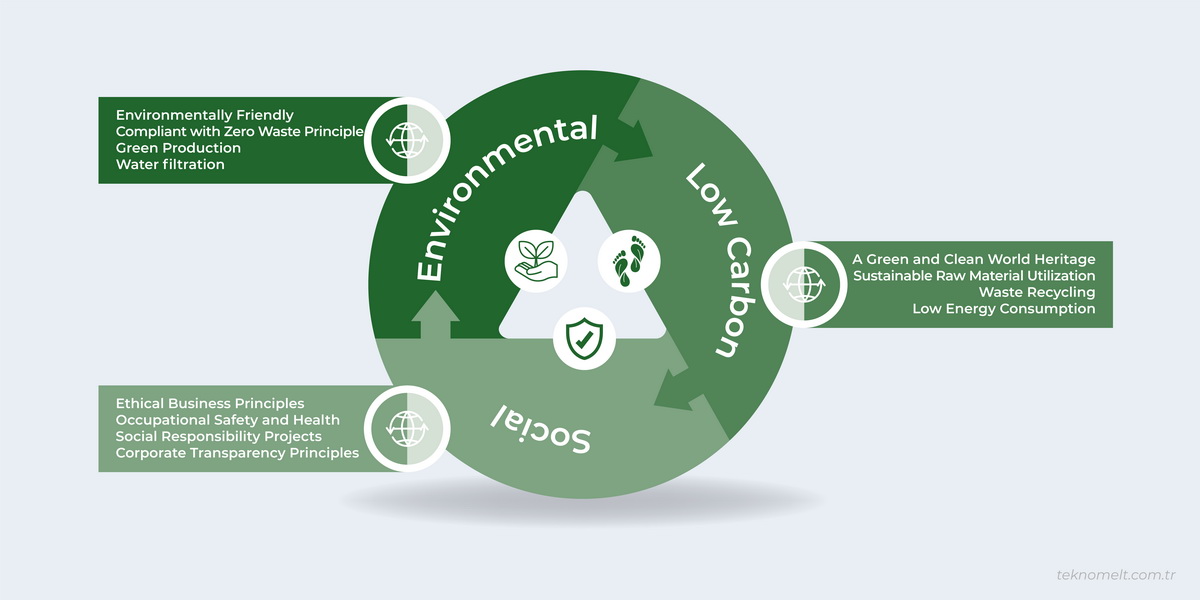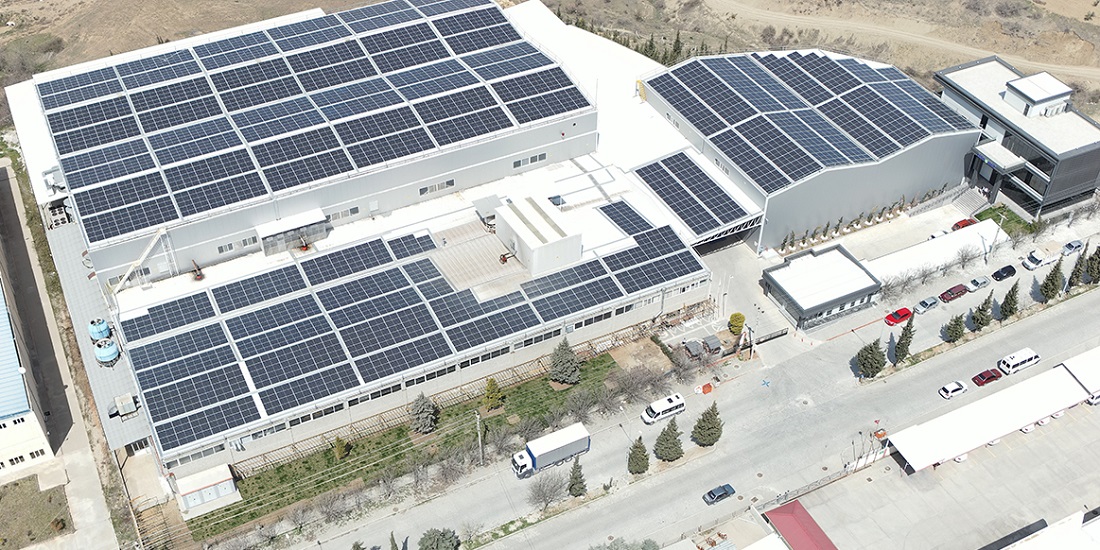Sustainability is Our Priority!
We are aware of our responsibility to nature and future generations. Our sustainable production approach is an important part of our efforts covering environmental, social and economic dimensions. From our supply chains to the selection of raw materials and the reuse of waste, we are committed to sustainability at every step.


Sustainable and Low Carbon Production
We care about the transition to a low carbon economy and increase efficiency by minimizing resource use through digitalization. In this way, we are reducing our corporate carbon footprint. We strive for cleaner and environmentally friendly production by increasing our renewable energy resources.
We continue to offer environmentally friendly solutions with our Biona and Econa products!
We prioritize our responsibility towards nature by using 100% natural fiber and biodegradable materials in our Biona products. With our naturally soluble products, we leave no traces in nature after use.
With our Econa products, we work for a sustainable future by reducing the petroleum-based polymer content. We reduce the use of plastic by reducing this rate to 50% in wet wipes containing 90% petroleum-based polymers.
Less petroleum-based polymers, a cleaner world!
We continue our work to leave a more livable world to future generations.
Environmental Sustainability
With our principle of respect for nature in sustainable production, we aim to minimize the environmental impacts of production processes and products. We aim to use natural resources sustainably, reduce environmental pollution and protect biodiversity. For this purpose, we recycle all of the waste and cuttings generated in our production process, in our own facility or recycling facilities. We filter and reuse 95% of the water we use in production, keeping the consumption of water resources to a minimum.
By using natural gas in drying ovens in production, we reduce greenhouse gas emissions and the related climate change effects.
Our principles supporting respect for nature in sustainable production; the aim is to use natural resources effectively, minimize the amount of waste, reduce environmental impact, and choose renewable environmentally friendly materials. Taking into account the effects of production processes on ecosystems, ensuring the protection of biological diversity and using water sustainably are important parts of our understanding of nature-friendly production.
Solar panels play an important role in producing renewable energy. Solar panels help reduce dependence on fossil fuels, prevent environmental pollution, and reduce energy costs. As Teknomelt, based on this philosophy, we support renewable energy and produce our own energy with solar panels in our production facilities. In this way, we save energy at the rate of 15%.


Social Sustainability
We aim for the following basic principles with social sustainability. With ethical business practices; By focusing on business ethics and transparency, we respect employee rights regarding fair wages, job security and working hours. We care about social sustainability by focusing on employee training, development and improved working conditions, creating a work environment that is sensitive to equal opportunities, gender equality and workers’ rights. With Social Responsibility Projects; we support projects that benefit society in areas such as education, health and infrastructure.
With Environmental and Social Risk Management; We continue our work to determine the social and environmental impacts against possible risks from supply chain management to energy use. By adopting transparent communication, we attach importance to establishing effective communication and creating an environment of trust with all stakeholders, from customers to suppliers, from employees to investors. By organizing training programs within the company, we contribute to increasing the skills and awareness of our employees on their professional abilities or contemporary topics. We evaluate and report our social sustainability performance regularly and transparently through reporting and evaluation processes.

